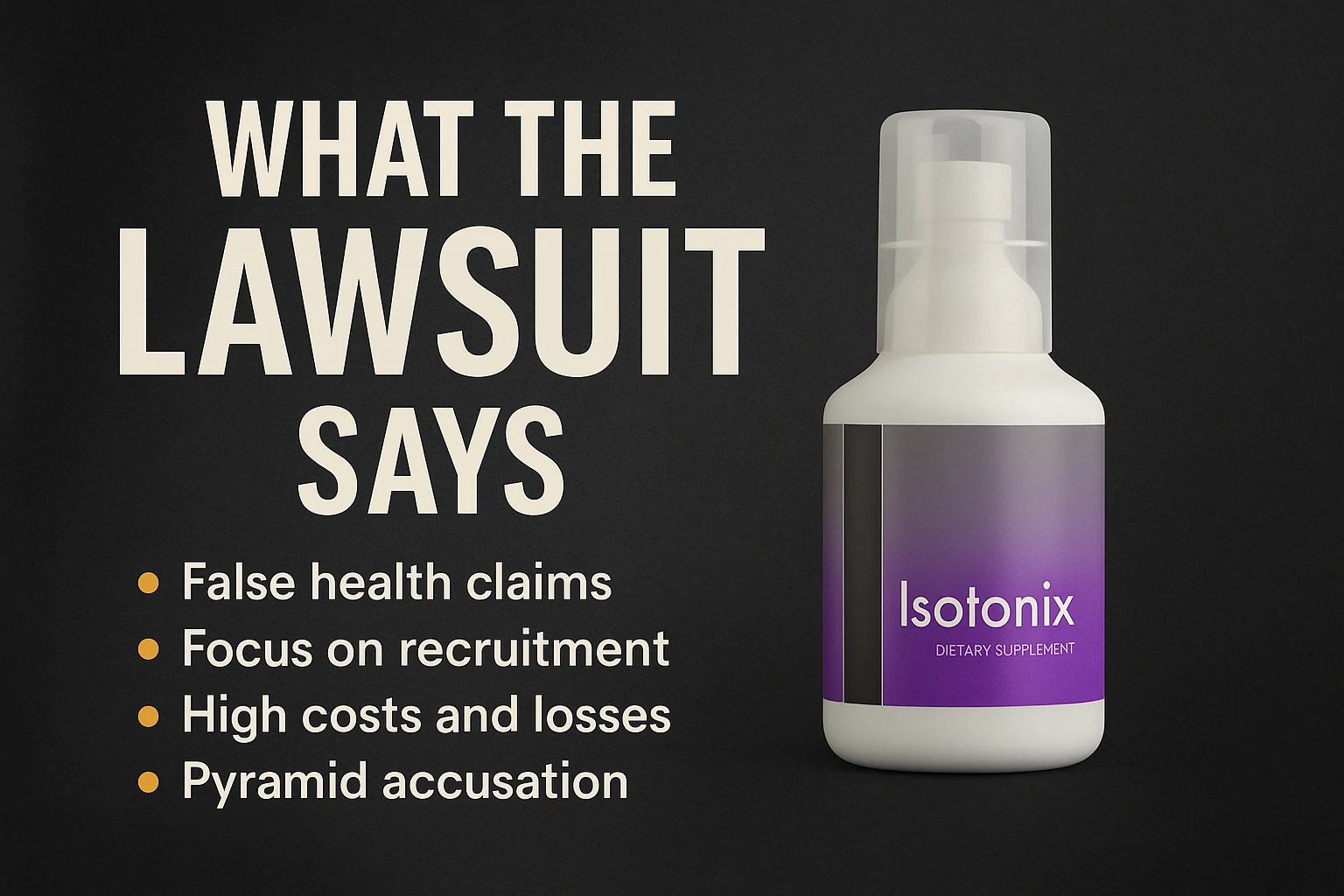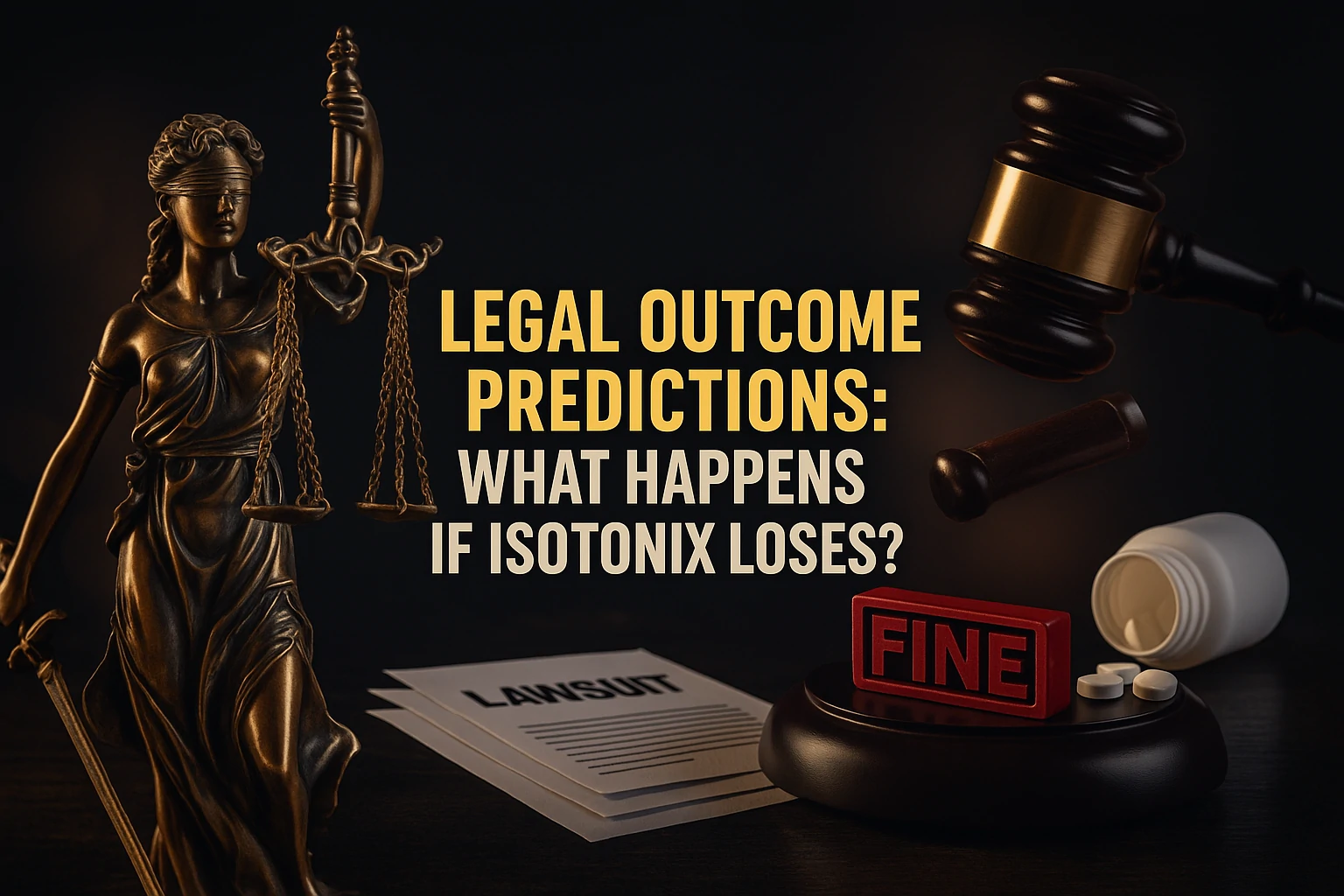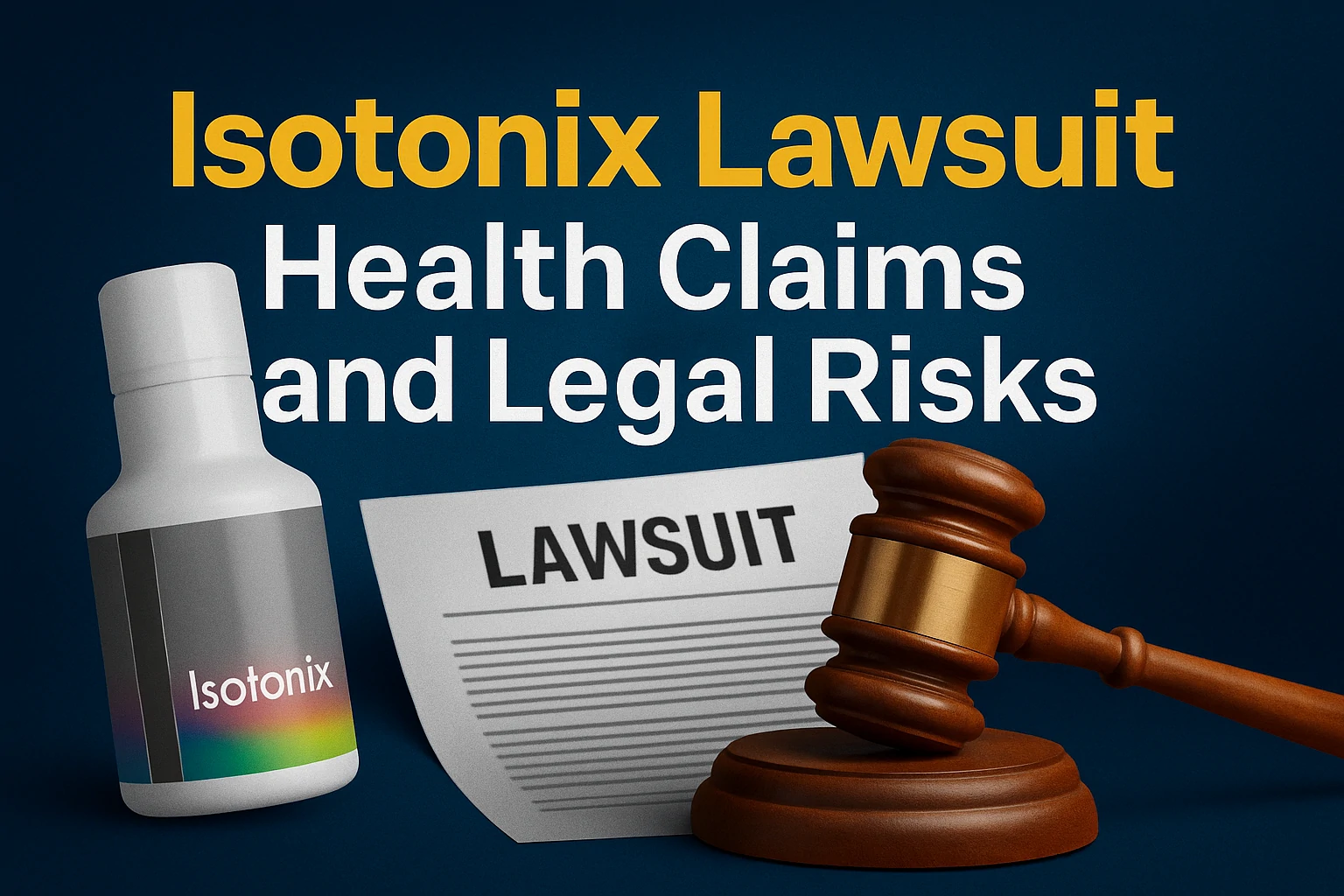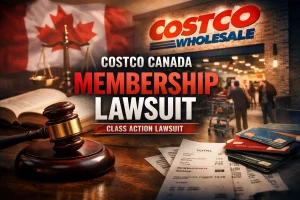Isotonix became a popular name in the supplement world. The company promised better absorption through its special liquid formulas. Many users believed they found a better way to support health. The brand claimed faster results and high-quality ingredients. Some people also joined the company as sellers, hoping to make money.
As more people got involved, more questions came up. Buyers wanted proof. Sellers wanted results. Over time, concerns grew. Some users said the products made big promises but gave little in return. Others said the business model pushed recruitment too hard. Eventually, legal action followed.
A lawsuit began. It raised concerns about health claims, product labeling, and how the company treats its sellers. The case uncovered more problems. It drew the attention of both buyers and the U.S. government. Now, many people want to know if Isotonix is safe, fair, and legal.
This article explains the case in detail. You will learn what Isotonix is, what the lawsuit says, how it started, and what it means for consumers. Whether you use the product or just heard the name, this guide gives you facts that matter.
What Is Isotonix?
Isotonix sells dietary supplements. These supplements come in powder form. You mix them with water before drinking. The company says this method helps your body absorb nutrients faster. Most of the products focus on vitamins, minerals, and health blends. They target areas like energy, digestion, immune support, and stress relief.
The brand belongs to a larger company called Market America. It runs a system where regular people can sell products. This is called multi-level marketing, or MLM. The people who join are called “UnFranchise Owners.” They earn money by selling products and building teams of new sellers under them.
This mix of health products and income opportunity created buzz. But over time, many sellers said they lost money. Some said the focus shifted from selling to recruiting. Others said the company made big claims but gave no proof. These concerns form the heart of the lawsuit.
What the Lawsuit Says

The lawsuit against Isotonix includes several serious claims. It says the company made false promises about its products and misled people who joined the business. Below are the key points of the legal challenge, explained in simple terms.
False Health Claims
Isotonix promoted its products with bold words. The brand said the supplements entered the bloodstream faster than pills. They said the “isotonic” system gave results other supplements could not match.
But critics say there was no solid proof. The lawsuit says the company made medical-style claims without clinical studies. Some buyers felt misled. They expected better health. They got little or no change.
Some labels also left out key facts. The government said some serving sizes were wrong. Others missed important details. These issues raised more red flags.
Business Model Problems
The lawsuit says the company placed too much focus on recruitment. Sellers had to buy kits and inventory. They had to stay active by buying every month. They also had to attend events, pay for training, and bring in new members.
People who joined were told they could earn a lot. But many did not. Some lost thousands. Others quit and felt used. The lawsuit compares this to a pyramid scheme. That is when people at the top earn from sign-ups, not from real product sales.
A legal business should reward retail sales, not just team growth. The lawsuit says Isotonix failed to meet that standard.
Isotonix Pyramid Scheme Accusations Explained
Many people joined Isotonix to build a home-based business. They believed they could earn through honest sales. But the lawsuit says most of the money came from new sign-ups, not real customers.
A pyramid scheme looks like a business. It sells products, but the main focus is recruitment. Sellers earn more when they bring in new sellers. These new sellers then do the same. Most of the income stays at the top.
In the Isotonix model, distributors had to buy kits and stay active through repeat purchases. The system rewarded team building. It did not reward product sales as much. Some sellers said they felt forced to recruit or risk losing money.
The lawsuit uses this structure to question the company’s legality. It says the plan focused more on growth through new members than value through product results. That crosses into pyramid territory.
People at the bottom of such systems often lose money. They buy stock. They invest in events. They bring in others. But most never earn enough to cover their costs. That is why courts watch these models closely.
Isotonix FDA Warning Letter Breakdown
The U.S. Food and Drug Administration (FDA) inspected Market America’s facility in 2019. After the visit, the FDA sent a formal warning letter in early 2020. This letter listed multiple violations linked to Isotonix products.
The agency said some products had wrong serving sizes. Others failed to show the full names of herbal ingredients. A few labels did not match the rules for dietary supplements. These issues made it hard for users to know what they were really taking.
The FDA also said the company missed reports on serious side effects. This is a key rule for safety. If someone gets hurt using a supplement, the company must report it. Market America failed to do that.
The warning letter did not call the product unsafe. But it showed weak oversight. These problems added more pressure to the ongoing lawsuit. They raised concern about how the company manages health risks and label truth.
The company said it would fix the issues. It promised to follow the rules better. But the damage was already done. The FDA findings gave weight to claims in court. It also made buyers question product safety and company care.
Market America was cited for misbranding, poor labeling, and failure to report side effects.
View official FDA letter (PDF)
Market America and Isotonix: Parent Company’s Role in the Lawsuit

Market America owns the Isotonix brand. It started in 1992 and built its system on multi-level marketing. People sell products and recruit others to do the same.
The lawsuit says Market America created the entire business model. It designed the products, trained sellers, and set income rules. The court holds the parent company responsible for the brand’s actions.
Former sellers said the company pushed recruiting over product sales. They also said it charged high fees for events and tools. These costs hurt their profits and added to losses.
Market America denies the claims. It says its system is fair and legal. But the court will decide if the structure crosses the line.
What the Isotonix Income Disclosure Really Shows
Market America releases income reports that show how much Isotonix sellers earn. The data gives a clear view of the gap between high expectations and real results. Most sellers make little money, and many spend more than they earn.
| Income Range (Per Year) | Percentage of Sellers | Real-World Meaning |
|---|---|---|
| $0 – $99 | About 80% or more | Most sellers earn almost nothing. They lose money after costs. |
| $100 – $499 | Around 10-15% | Some sellers make small profits but spend most of it on fees or products. |
| $500 – $2,000 | Fewer than 5% | Only a few cover their expenses. Profit remains limited. |
| $2,000+ | Very small group | These sellers are usually at the top or rely on recruitment income. |
The company often promotes the highest earners as success stories. These cases are rare. Most people who join expect steady income but face losses instead.
The lawsuit points to these facts. It says Market America failed to give honest warnings about income risks. These reports now play a central role in proving that claim in court.
Isotonix Reviews vs. Reality: What Users Say About the Products
Isotonix products receive mixed reviews. Some buyers say they like the taste. Others say they feel more energy. A few say their health improved.
But many users feel disappointed. Some report no change after weeks of use. Others say the products caused headaches or stomach pain. A few people had allergic reactions.
Most complaints focus on results. People paid high prices. They expected clear benefits. But many saw little difference. This gap between hope and outcome adds weight to the lawsuit.
The brand’s marketing shows strong claims. It promises better absorption and faster effects. Real stories show a more complex picture. Trust depends on truth, not hype.
Does the Isotonix Compensation Plan Work for Sellers?
The Isotonix compensation plan looks strong on paper. It shows different ways to earn. These include retail profits, commissions, and bonuses for building a team.
New sellers often start with hope. They believe they can move up fast. The company shares success stories that show big rewards. But these results are not typical.
Most sellers do not earn enough to cover their costs. They must buy products each month. They also pay for training, tools, and events. This makes it hard to profit without constant recruiting.
The lawsuit points to this system. It says the plan rewards people at the top. Others struggle. The structure may look like income opportunity, but many walk away with losses.
Isotonix Class Action Lawsuit: Who Can Join and How to Qualify
Many people have joined the Isotonix lawsuit. Most of them are former sellers. Others are customers who bought the products and felt misled. The case claims the company used false promises and unfair systems. These claims led to a class action.
A class action lawsuit lets a group of people come together. They file one case instead of many separate ones. This helps save time and lowers legal costs. If you lost money with Isotonix, you might have a right to join.
To qualify, you must show how you were affected. This can include order history, payment records, emails, or proof of business losses. If you signed up as a seller and lost money, your records may support your claim. If you bought the products and experienced side effects or false claims, you may also qualify.
Joining a class action means you could receive money if the case wins or settles. It also means your story becomes part of a bigger voice. Many people feel small when facing a large company. A class action helps balance that power.
Common Ingredients in Isotonix Products: Are They Safe?
Isotonix supplements contain many common ingredients. These include vitamin C, calcium, magnesium, and B vitamins. Some products also use herbs like grape seed extract or green tea.
These ingredients are found in many health products. Most people can take them without trouble. But that does not mean every product is safe for every person.
Some users reported side effects. These include headaches, bloating, and upset stomach. A few users had allergic reactions. These side effects may come from how the body reacts to certain blends.
Each person’s health is different. Even natural ingredients can cause harm if taken the wrong way. Buyers should read every label. They should talk to a doctor before use, especially if they take other medicine.
Top Red Flags in MLM Supplement Companies Like Isotonix
Many supplement companies that use multi-level marketing follow the same patterns. These warning signs help you spot possible risks:
- Focus on recruitment: The system rewards you more for bringing in new sellers than for selling products to real customers.
- Monthly spending requirements: Sellers must buy products regularly to stay active, even if they can’t sell them.
- High event and tool costs: The company charges fees for training, conferences, or marketing kits. These expenses often reduce profits.
- Big health claims without proof: Some products promise fast results or major benefits but have no clinical studies.
- Income hype: Success stories highlight rare top earners, but most sellers earn little or nothing.
These red flags often appear in lawsuits like the one against Isotonix. Stay alert when joining or buying from MLM brands that follow these tactics.
Legal Outcome Predictions: What Happens If Isotonix Loses?

If Isotonix loses the case, the company may face serious changes. It could pay large fines. Some sellers may get refunds. Others may receive payments for business losses.
The court may force the company to change how it sells. It may stop some products. It could also ban the use of certain ads or claims. If the system looks like a pyramid scheme, the company might shut it down.
Regulators may also take new steps. They may increase reviews of other MLM brands. More rules could follow. This case may set a strong example across the supplement industry.
The final result depends on the court. But one thing is clear. This lawsuit could change how health brands and MLM companies do business in the future.
Learn what strengthens or weakens a lawsuit claim. Visit: Can You Win a Personal Injury Lawsuit?
Isotonix Lawsuit and Social Media Reactions
The Isotonix lawsuit has drawn major attention online. Former sellers and buyers have shared their stories on social media. Posts on Facebook, Reddit, and YouTube show a mix of anger and disappointment.
Some sellers say they trusted the company’s income claims. They now warn others to avoid the same mistake. Buyers post reviews that question product value and truth in advertising. These shared stories spread fast, adding pressure to the brand.
Public response has made the case more visible. The lawsuit is not just in court; it is in conversation across the internet. This growing exposure adds new weight to how people see the company’s reputation.
Steps to File a Complaint If You Were Affected
People who feel misled or harmed by Isotonix can take action. There are simple ways to report the problem or join a legal claim.
Start with the Federal Trade Commission (FTC). Go to the official FTC website. Use the online complaint form. You can report false income claims, product issues, or hidden costs.
You can also report side effects or unsafe products to the FDA. Use the MedWatch form on the FDA website. List the product name, your symptoms, and any doctor visit that followed.
If you lost money as a seller, keep all your records. Save emails, receipts, and product orders. A class action lawyer may use this proof to support your claim.
These steps help hold companies accountable. They also protect others from facing the same problems in the future.
How the Isotonix Case Compares to Other MLM Lawsuits
The Isotonix lawsuit is not the first of its kind. Many other multi-level marketing companies have faced similar legal action. These cases show a pattern across the industry.
Herbalife was one of the biggest cases. It paid $200 million in a 2016 settlement. The company had to change how it paid its sellers. It also had to prove that sales came from real customers, not just sign-ups.
Advocare was another example. In 2019, the FTC said it used a pyramid structure. Advocare agreed to shut down its MLM system and paid a $150 million fine.
Like Isotonix, both companies promised strong income and pushed recruitment. They showed success stories that only a few reached. The legal outcome in the Isotonix case may follow the same path. It may lead to refunds, system changes, or new rules across the MLM world.
“Most MLM lawsuits follow the same pattern – promises of income, but no real path to profit.”
— Consumer Law Expert, LegalWatch Blog
Timeline of the Legal Trouble
The problems did not begin overnight. They built up over time. The lawsuit grew from small complaints to a large legal case.
- Early concerns started in the 2010s.
- In 2017, the first lawsuits came from former sellers.
- In 2019, the FDA inspected Market America.
- In 2020, the FDA sent a warning letter.
- In 2022 and 2023, more sellers joined legal action.
The case keeps growing. New claims appear. Regulators continue to review. The outcome may take time, but the signs point to deep problems.
Seller Experiences: What Went Wrong
Many sellers joined with hope. They saw stories of success. They believed they could earn real income. But soon, many faced high costs and low returns.
Some sellers said they spent over $10,000 on inventory and events. They worked hard. They followed every rule. But they made little profit.
Others said they were pushed to recruit friends and family. They had to keep buying products they could not sell. One seller said the pressure ruined close relationships. Another said she ended with debt and regret.
These stories show why the lawsuit matters. People did not just lose money. They lost time, trust, and support.
I spent over $9,000 on kits, events, and inventory. My sponsor promised fast results. I made $180 in 14 months. I was stuck and broke.
— Former Distributor, 2022 Court Filing
What Real Buyers Say About Isotonix Products
Isotonix buyers share a wide mix of opinions. Some say the supplements taste good and are easy to use. Others feel more energy or better digestion after a few weeks. These users believe the products add value to their routine.
But many buyers feel let down. Some report no change after weeks of use. Others say they felt mild side effects like nausea, bloating, or headaches. A few said they had allergic reactions. These problems vary by person, but they raise concerns.
One major complaint is price versus results. Buyers expect premium outcomes due to the high cost. But many do not get what they hoped for. This gap between promise and performance adds weight to the lawsuit.
Supplements like Isotonix do not need FDA approval before they reach the market. That makes it harder to judge safety or strength. Each buyer must be cautious. Always read the label. Start slow. Ask a doctor before using any supplement with other medicine.
Impact on the Supplement Industry
This lawsuit sends a strong message. Supplement brands must be honest. MLM companies must stay legal. Buyers and sellers now demand proof. They want real results and real safety.
Other companies are watching. The FDA and FTC are watching too. If the court rules against Isotonix, more lawsuits may follow. This could reshape how supplements and MLMs work.
Companies will need to show clear labels, full safety records, and honest income claims. That is a win for the public.
Explore another rare legal path in our breakdown of the alienation of affection lawsuit.
Share your story in the comments or contact us directly. Your insight may help others stay informed.
What You Should Know Before You Decide
The Isotonix lawsuit brings hidden problems into the light. The company said its products worked better than others. It said sellers could earn big money. The truth looks different.
Many users saw no health change. Many sellers lost money. The company now faces questions from courts and regulators. The case could change the rules for others in the industry.
If you use Isotonix, be alert. Read the label. Check the facts. If you sell it, ask where your money really comes from. Be sure your efforts lead to value, not loss.
This is more than one lawsuit. It is a lesson in trust, proof, and how companies must treat people fairly. In health and business, facts matter more than hype.
Disclaimer: This article is for informational purposes only. It does not offer legal or medical advice. Please consult a licensed attorney or healthcare provider before taking action. This content reflects public reports and opinions and does not represent claims by the author or the site.




